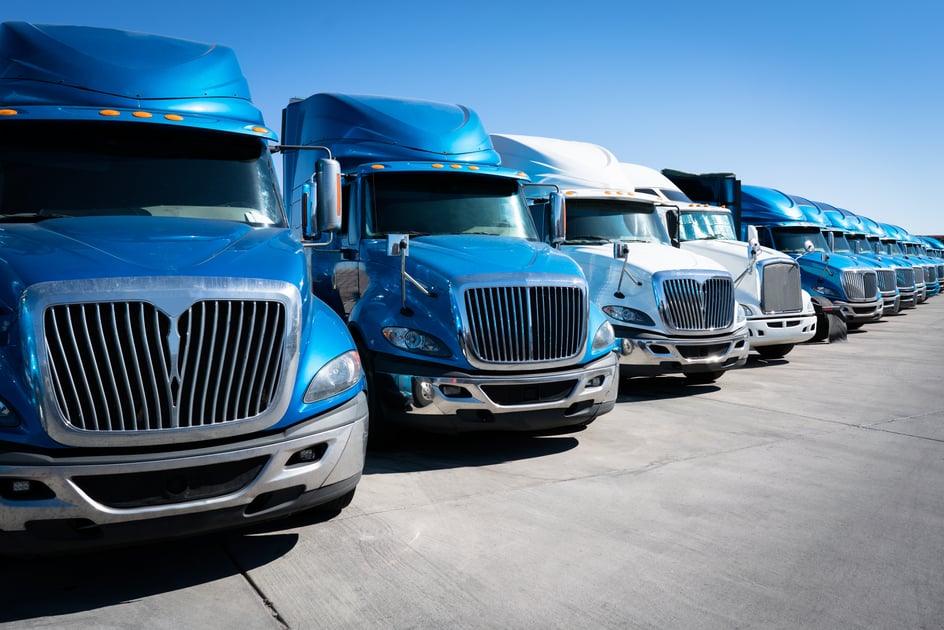
What is the FMCSA (Federal Motor Carrier Safety Association)
The FMCSA, which stands for Federal Motor Carrier Safety Administration, was created by the Federal Highway Administration in 2000. Its creation was meant to best protect against and limit motor carrier related fatalities and injuries on U.S. highways.
Ways the FMCSA takes preventative measures:
- Strong safety enforcement
- Identifying the higher risk motor carriers
- Improving transportation technology
- Increasing safety awareness
- Strengthening motor carrier standards
The FMCSA carries out these measures using a number of methods, by:
- Developing and enforcing data-driven regulations
- Harnessing safety information systems for stricter enforcement
- Targeting educational messages to carriers, commercial drivers and the public
- Partnering with stakeholders including Federal, State, and local enforcement agencies, the motor carrier industry, safety groups, and organized labor
The FMCSA covers a vast swath of motor carriers. It regulates approximately 521,000 freight motor carriers, 13,000 passenger carriers, 17,000 intrastate hazardous materials carriers and 4 million active CDL holders.
 With such a large reach, the FMCSA’s work is essential to crash prevention. It estimates that it prevents roughly 15,000 crashes per year, as a result of these programs. This translates into saving roughly 500 lives per year.
With such a large reach, the FMCSA’s work is essential to crash prevention. It estimates that it prevents roughly 15,000 crashes per year, as a result of these programs. This translates into saving roughly 500 lives per year.
There is a set of criteria that determines whether or not a certain motor carrier is subject to FMCSA regulations.
Carriers with commercial motor vehicles involved in interstate commerce must always follow United States Department of Transportation regulations. Those commercial motor carriers then must also follow FMCSA is regulations as well if they are part of the following:
- A vehicle with a gross vehicle weight rating or gross combined weight rating of 4,537 kg (10,001 lb) or more
- A vehicle designed or used to transport between nine and 15 passengers (including the driver) for compensation
- A vehicle designed or used to transport 16 or more passengers
How can shippers use FMCSA resources?
Validating operating authority
The FMCSA offers key resources for shippers and other stakeholders to ensure carriers are licensed and have strong safety records. To first determine if a freight carrier has a valid operating authority - turn to the FMCSA's Licensing and Carrier Search database.
Anyone can simply search by a carrier's MC number and the site will validate whether the carrier is operating legally. Additionally, it will provide a full history of any changes that have occurred since its MC number was authorized.
Items to review with a carriers MC number:
- Is the MC number valid?
- How long has the carrier been in operation?
- Has the carrier’s operating authority been revoked at any time in its history and for what reason?
If you don't know the MC number, you are also able to search using any combination of Legal Name, DBA Name (Doing-Business-As Name) or State to narrow down options to hopefully find the carrier in question.
Checking safety records via FMCSA Safer
Once MC number review is complete, another must is to check on the safety rating of the carrier. This can be accomplished via the FMCSA Safety and Fitness Electronic Records (SAFER) System. Through SAFER, FMCSA offers company safety data and related services via another searchable database.
Through this, shippers validate the safety records of the carriers they employ to run their freight and see their inspection history. Keep in mind, a clean safety record may not be what it seems. If, for example, a carrier has been in business for a while and there are no inspections, it may indicate the carrier is fronting the business as an asset motor carrier, but then brokering all the loads out.
A possible red flag when reviewing the safety records is when a carrier has a high out of service rate. This could indicate they are getting stopped at every scale for further scrutiny based on past transgressions.
For a simplified, straight-forward summary of a company's identification, size, commodity information and safety record (to include safety rating, a roadside out-of-service inspection summary and crash information), the FMCSA Snapshot within the SAFER System is the way to go. In essence the Company Snapshot offers a concise electronic record of the company.
Reviewing commercial driver's license (CDL) driver background through the FMCSA Clearinghouse
FMCSA's Drug and Alcohol Clearinghouse is another online database. This FMCSA portal, however, is for carriers to check the backgrounds of prospective and current CDL (commercial driver's license) holders. According to the FMCSA, the Clearinghouse enables employers to identify drivers who commit a drug and alcohol program violation while working for one employer, but who fail to subsequently inform another employer (as required by current regulations).
This database includes information on both commercial license and commercial learner's permit holders. It's designed to ensure drivers are cleared to operate commercial motor vehicles on the nation's highways and byways.
For any of the above databases, users should not treat them as one-off searches as things change over time. This information should be checked on a regular (at least yearly) basis. The annual check is actually required when it comes to the Clearinghouse. And note that an FMCSA login is required to access many of the functions, with options to sign up as a company user or enforcement user.
Shippers that feel like these regular checks are a lot of legwork can always turn to a logistics service provider (LSP). The LSP will ensure its carrier pool is constantly under review through industry best practices to protect its customer base.
Other articles of interest on motor carriers:
- Definition and Importance of Gross & Tare Weight in Logistics
- Freight Cargo Insurance Policy Types Explained
- Carmack Amendment Explained in Detail
- Logistics Service Providers (LSP) vs. Motor Carriers
- The Complete Guide Truckload, LTL and Expedited Freight Capacity
- Freight Motor Carrier Defined
To learn more about InTek Freight & Logistics and the logistics industry, check out our Freight Guides and subscribe to our blog.
Get Updates
Featured Articles
Categories
- Freight & Shipping Costs (54)
- Freight Broker (60)
- Freight Forwarder (2)
- Intermodal Transportation (184)
- International & Cross Border Logistics (43)
- Logistics & Supply Chain (420)
- Logistics Service Provider (77)
- LTL (39)
- Managed TMS (49)
- News (39)
- Supply Chain Sustainability (12)
- Transportation Management System (37)
- Truckload (122)
- Warehousing & Distribution (50)




